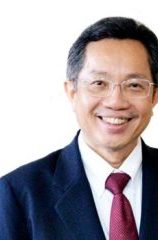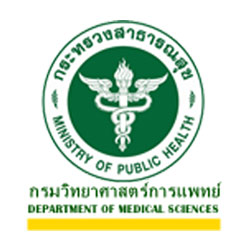In conversation with
In conversation with Dr. Apichai Mongkol
General Director | Department of Medical Sciences, Ministry of Public Health

Tags: CLMV, consumer protection, Healthcare, Stem cells, Universal Health coverage
FDI Spotlight: What is the DNA of The Department of Medical Sciences here in Thailand?
Dr. Apichai Mongkol: The Department of Medical Sciences conducts research focusing on innovation in the medical field for the both public and private sector here in Thailand. We are taking steps forward in order to bring Thailand’s Medical science capabilities to a best in class standard. For example, one of the initiatives we are currently working on is our aim to drastically reduce diagnosis time guided by world class standards. For example, when we had Ebola last year, we significantly improved the distribution network to reduce the diagnosis time down to 8 hours from receipt of specimen. Our efforts were recognized internationally and other countries came to us in order to help them deal with the out-break more efficiently such as our neighbours, Myanmar.
The second core aspect of the Department is consumer protection. We conduct precise analysis working very closely with the Minister of Industry who has asked for our collaboration. All imported items are analysed for health and safety measures to stop banned substances entering Thailand. As a result of our consumer protection system’s efficiency, we lend our services to neighbouring countries to help fight the importation of banned substances on a regional level.
What are the challenges you face in order to change the mind-set and help the main stakeholders in your industry?
Dr. Apichai Mongkol: There are three main challenges I have in mind at the moment.
First of them is to improve the regulations of export products. We are trying to control the number of pesticides and test the products under the regulations of the EU in order to export here. Our duty is to educate the public about the pesticides. We already provide food to other countries and we need to be 100% sure that this food is safe.
Our second challenge is to educate the number of farmers so that they can use the personal consumer protection checking kit autonomously. There are more than one million health volunteers in the country equipped with the knowledge and measurement tools that can help farmers analyse their products nationwide.
The third but not the least challenge is to make sure that all laboratories in Thailand are following the Ministry of Health’s standards. We are using ISO 15189 as a benchmark to incrementally improve the standards of all medical laboratories in Thailand. As more facilities meet the ministry standards that we have set, so too will our expectations rise with the goal of bringing every facility to the ISO 15189 standard. 99% of public hospitals have now been certified with national ministerial standard thanks to our department’s commitment to the implementation of this standard. Furthermore, in reference to X-ray analysis international standards, we have developed our own, in accordance with the international guidelines from the World Health Organization. These two certifications will be used in ASEAN soon and I hope that the Department of Medical Sciences will be the one approving the quality certificates for our ASEAN neighbours.
How do you see the opportunities and challenges of AEC?
Dr. Apichai Mongkol: We believe in health as a bridge for peace. We want to cooperate and collaborate with them to support each other and bring stability and peace. Being the hub for the medical sector in the CLMV region, Thailand has the role of a leader in showing our neighbours the way that they should head and to support the region achieving a competitive level of development.
At a recent World Health Summit in Helsinki, the United States, South Africa and Thailand volunteered to position ourselves as champions in the field of national laboratory system development. This is an honour as well as a responsibility for Thailand to carry. With the recent inauguration of the ASEAN community, it is our duty to ensure Thailand continues to aid our regional partners in improving their national medical laboratory practices.
Which are the key areas that foreign investors should look at?
Dr. Apichai Mongkol: Human genomics is one area in which we would like to focus. We want to further our research in pathogen agents and hosts interaction.
Stem cells research represents the second area investors should consider. We have the facilities to produce the best quality stem cells in Thailand. We support Siriraj Hospital, Ramathibodi Hospital and Chang Mai University Hospital to study the stem cells in order to minimize their imports from Taiwan or Korea. We want to create a stem cells bank for the Thai people. In recent years Thai people have become more aware about the importance of stem cells and they are being used more frequently for treatments. Other developed countries have stem cells banks and we would like to see this in Thailand as well.
Are you confident for the future development of Thailand?
Dr. Apichai Mongkol: Yes, Thailand has already been famous for Universal Health coverage. Even the World Health Organization has recognized it. We would like our medical system to be accessible to everyone who is living here in Thailand and we are committed to continually improving this. Furthermore, in order to get out of the middle income trap we must be innovative and the government has implemented bold initiatives to this end. We are dealing with an ageing population here in Thailand so it is imperative that we take care of foreign workers from neighbouring countries. We want to improve their quality of life so they can stay here and prosper in Thailand.
